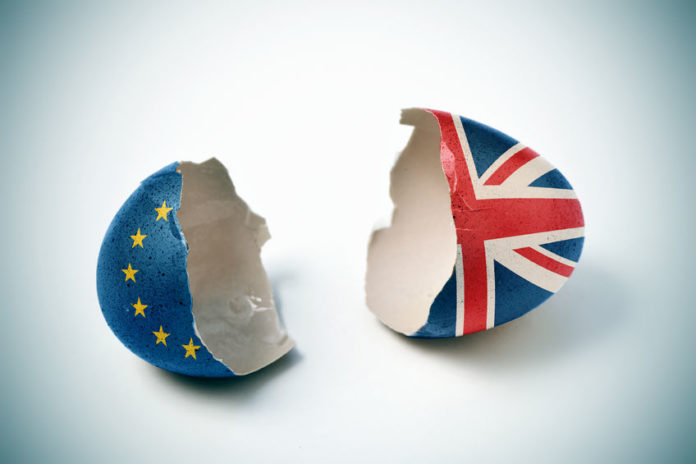
Margaret Fleming, London Office, Bord Bia – The Irish Food Board
On Thursday, the 21st of June, The Minister for Agriculture, Food and the Marine Michael Creed TD launched Bord Bia’s 2018 Brexit Barometer Results in Bord Bia’s Thinking House in Dublin with over senior industry representatives in attendance to hear Bord Bia’s CEO Tara McCarthy present the findings.
In the two years since the Brexit referendum, despite the uncertain landscape for Irish food and drink exports to the UK, trade to Ireland’s largest food and drink export market increased by 7% in 2017 to be worth over €4.4 billion. Senior management from 117 Irish food, beverage and horticulture companies undertook the Brexit Barometer 2018, the results of this have provided in-depth data that has been assessed to show how the sector has progressed in the year since the Brexit Barometer 2017. The Bord Bia Barometer 2018 findings depict how prepared the sector is for Brexit benchmarking against the following key risks – UK Customer Relationships, Supply Chain, Customs and Tariffs, Financial Resilience, Market Diversification and Emerging Risks. 74% of respondents feel that they have made clear or some progress in some of the following for these key Brexit risks.
UK Customer Relationships
Irish food & drink companies have been working on building their relationships with their UK customers, 85% of respondents have met with their key customers within the last 12 months. There has been an increase in 15% of companies in developing a specific UK marketing strategy versus the 2017 Brexit Barometer. These companies are working on identifying growth opportunities, 80% believe there are opportunities to increase their sales to the UK.
Supply Chain
The uncertainty of participants in whether their supply chain partners are Brexit ready has reduced from 68% to 40% since the 2017 Brexit Barometer. 62% of respondents have mapped their supply chain to identify possible impacts arising from Brexit, while 40% have taken steps to reduce their supply chain costs as a result of Brexit. In terms of sourcing, 24% of companies have changed their sourcing strategy, of this 24% who made the sourcing strategy change 68% are now sourcing from within the EU.
Customs and Tariffs
45% of companies surveyed believe they have reasonable or significant experience in complying with official requirements relating to the importation or exportation of goods from/to non-European Union markets. 32% of respondents have modelled the potential impact that costs arising from customs duties and tariffs may have on sales to the UK.
Financial Resilience
The Brexit Barometer 2018 indicates that companies have demonstrated an increased ability to manage sterling depreciation. Yet, just 48% have a hedging strategy in place, 35% of these companies with a hedging strategy have not adapted their currency risk strategy as a result of Brexit. For 50% of the companies assessed, Brexit has not had an impact on their investment strategy over the last 12 months.
Market Diversification
Export growth is top of mind for companies with 85% of respondents actively seeking to expand their business into new markets. Outside of the UK the growth markets that companies surveyed are concentrating on are Europe (86%), USA & Canada (49%), Middle East (49%) and China (33%). 61% of companies taking part in the Brexit Barometer have developed marketing strategy specifically for non-UK markets, an increase from 56% in the 2017 Brexit Barometer.
Emerging Risks
As talks continue between the EU and EU, companies need to be monitoring emerging risks and the impact these could have on their businesses. An effective way to identify risk is to maintain a risk register that is reviewed regularly.
Bord Bia are providing practical support to companies including hosting Customs & Tariffs Training 2018 and Supply Chain Workshops in September 2018. Click here to find out more about the Brexit Barometer results and UK Market information.



